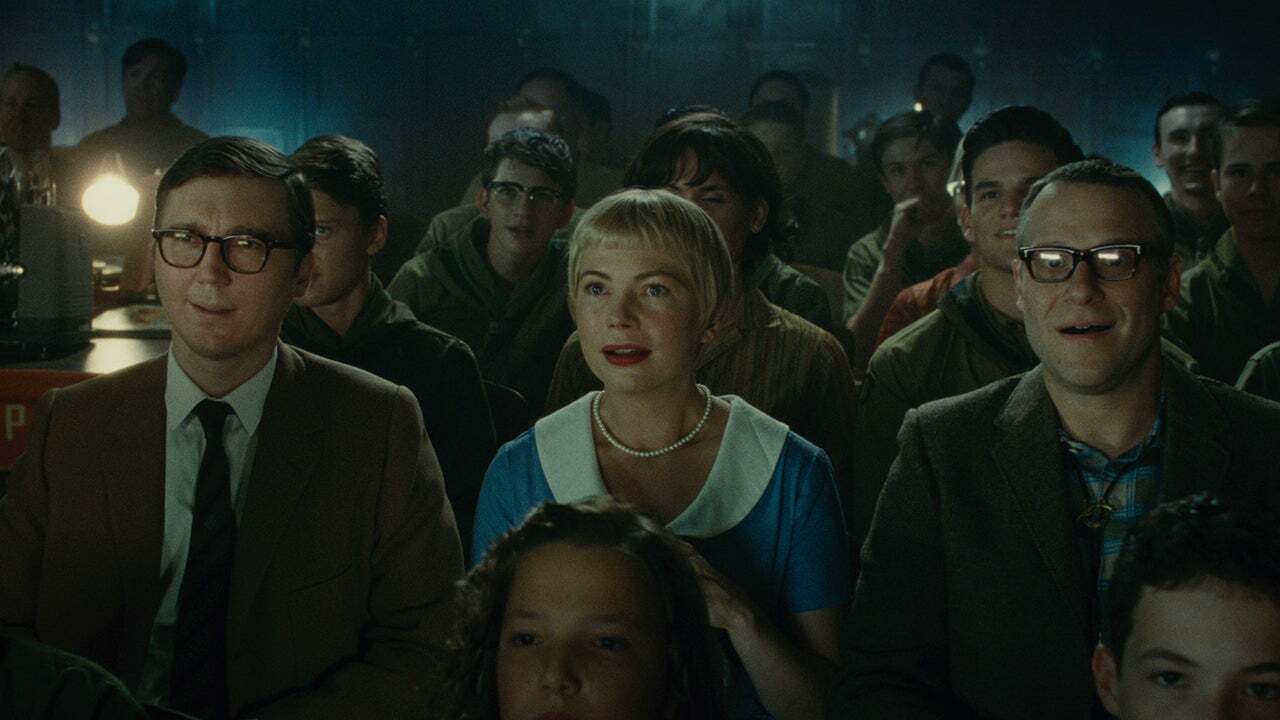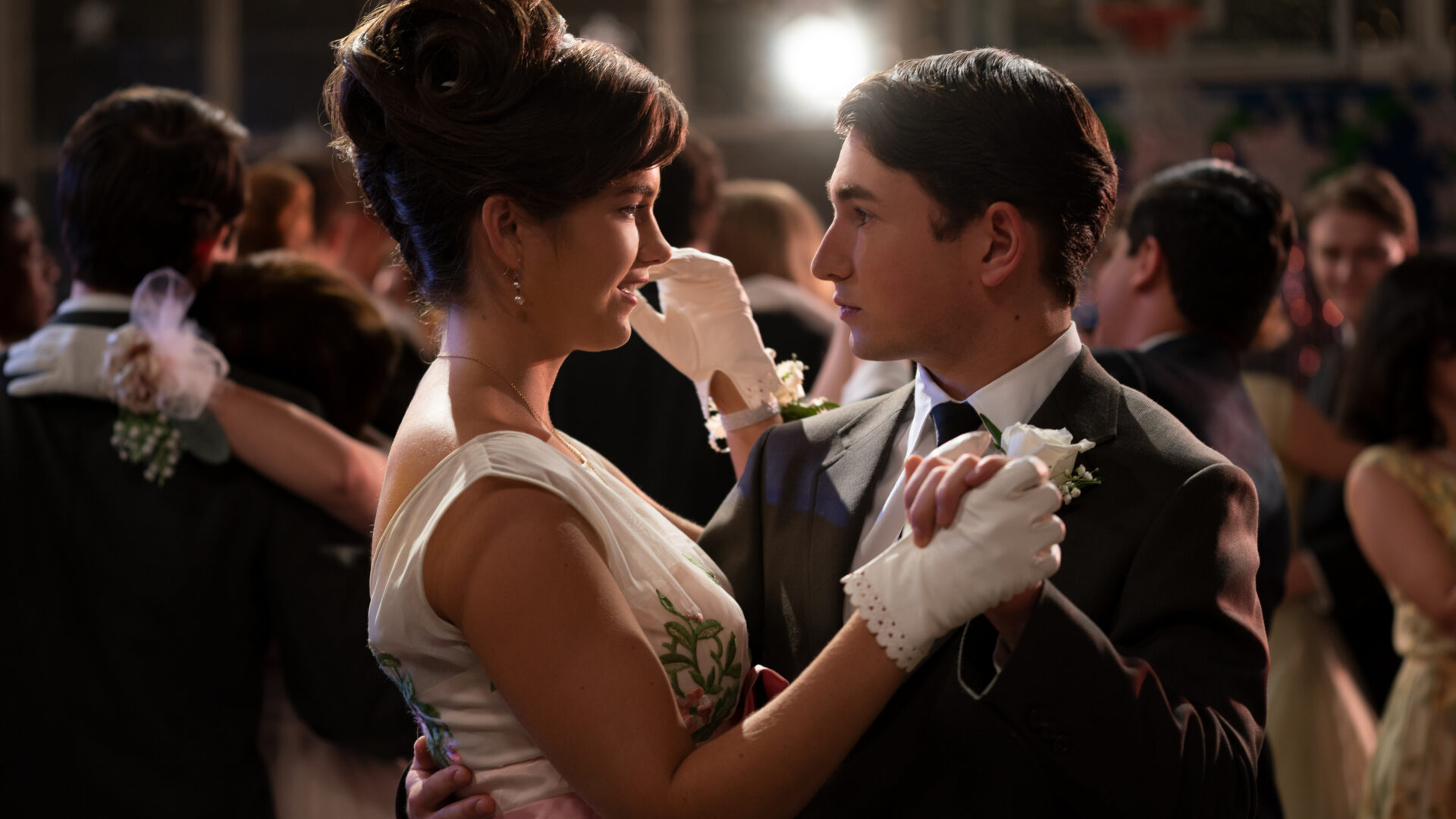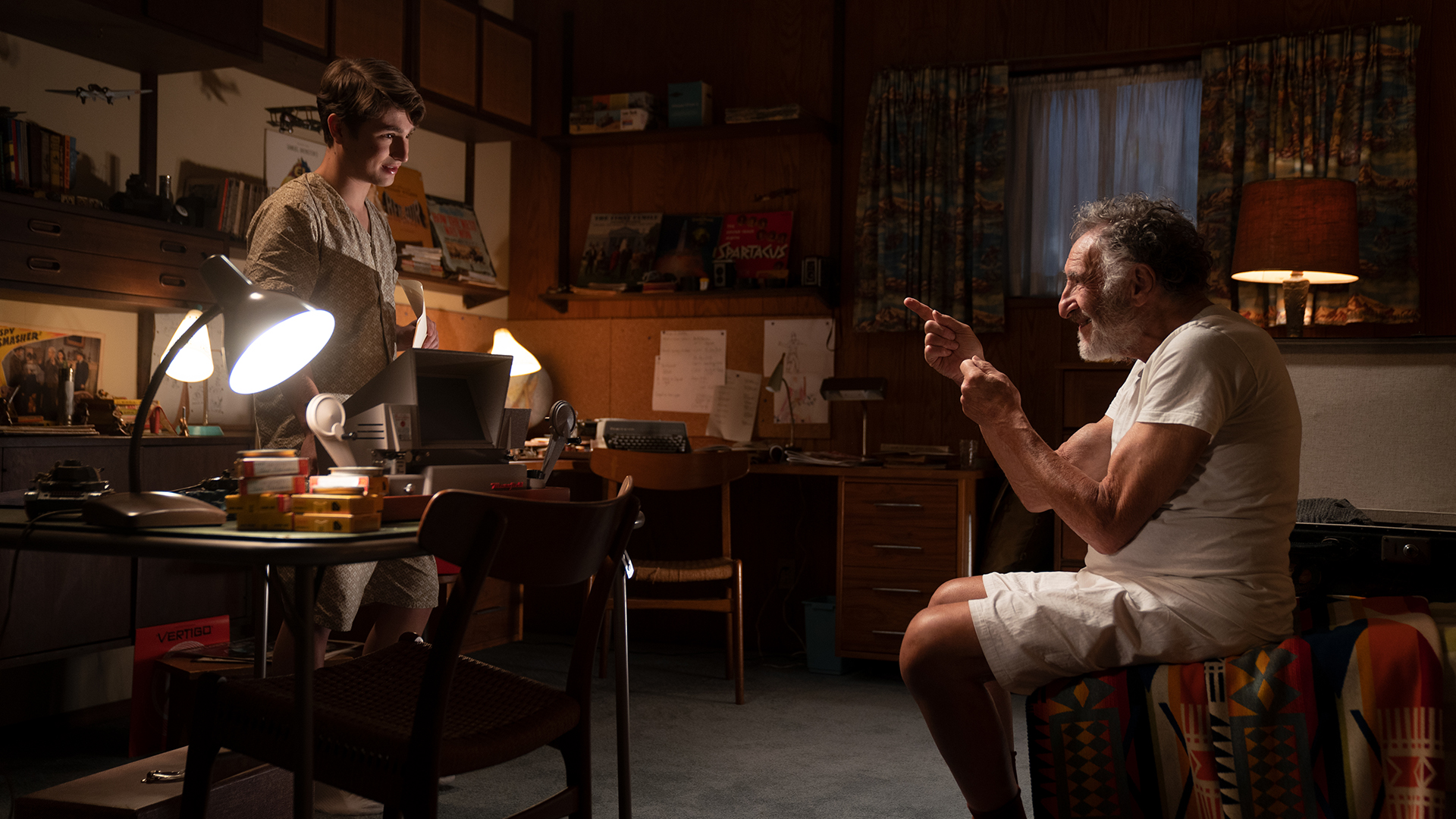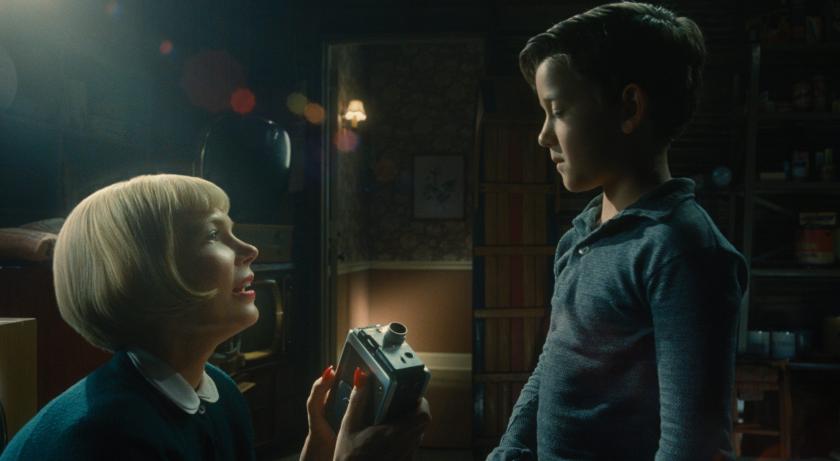Spielberg sometimes directed The Fabelmans through a film of tears, as he recreated his cinema’s origins. Lightly fictionalising his own family history, it turns an autobiographical key to previous films, while being fundamentally different to anything he’s made before.
His destiny’s zero hour is October 1, 1952, as nervous six-year-old Sammy Fabelman prepares for his first cinema trip, to see Cecil B. DeMille’s The Greatest Show On Earth. Dad Burt (Paul Dano) tries to demystify moving pictures’ illusion. Mum Mitzi (Michelle Williams) drops to Sammy’s level so he dwarfs her on screen, and debates a more ethereal realm. Films, she says, are “like dreams”. “But dreams are scary,” Sammy counters. “Movies are dreams that you never forget,” she tells him. In the movie-lit dark, a train smashes into a car and its passengers. The huge, violent sensation fills Sammy’s nightmares till Burt buys him a train set and camera, and he can film it himself. “Making a little world you can be safe and happy in,” Mitzi understands later, when he needs this. The Fabelmans was a long collaboration between Spielberg and co-writer Tony Kushner, in downtime between the Angels In America playwright’s work on Munich, Lincoln and West Side Story. Arnold Spielberg, Steven’s World War Two veteran, pioneer computer-designer dad, died in August 2020, and the screenplay was catharsis for his grieving son. The Fabelmans isn’t quite a kaddish for Arnold, more a homage to the Spielbergs’ vivid, rocky, loving life. It’s also proudly Jewish, showing ethnic, dinner table details in a way still rare in mainstream Hollywood. This is Spielberg wholly stating who he is.
The Fabelmans was a long collaboration between Spielberg and co-writer Tony Kushner, in downtime between the Angels In America playwright’s work on Munich, Lincoln and West Side Story. Arnold Spielberg, Steven’s World War Two veteran, pioneer computer-designer dad, died in August 2020, and the screenplay was catharsis for his grieving son. The Fabelmans isn’t quite a kaddish for Arnold, more a homage to the Spielbergs’ vivid, rocky, loving life. It’s also proudly Jewish, showing ethnic, dinner table details in a way still rare in mainstream Hollywood. This is Spielberg wholly stating who he is.
The Fabelmans move west across America like classic windblown settlers, following Burt’s improving computer design fortunes. Mitzi is happy for a while in Phoenix, Arizona, along with Burt’s clowning workmate Bennie (Seth Rogen, pictured above right with Dano and Williams), practically a member of the family. When Sammy’s obsessive filmmaking captures an illicit bond during a camping trip, he cuts incriminating scenes from the family home movie into a private film pored over in slow-motion, Zapruder footage of a near primal scene. Moving to California breaks the fragile détente, even as Sammy’s amateur oeuvre moves from Arizona’s westerns and war films to beach party hijinks. His first, Californian girlfriend, Monica (Chloe East, pictured above left with LaBelle), is wide-eyed with love for Jesus and his fellow sexy Jew Sammy; East makes her a horny, confidently curious, real girl.
Moving to California breaks the fragile détente, even as Sammy’s amateur oeuvre moves from Arizona’s westerns and war films to beach party hijinks. His first, Californian girlfriend, Monica (Chloe East, pictured above left with LaBelle), is wide-eyed with love for Jesus and his fellow sexy Jew Sammy; East makes her a horny, confidently curious, real girl.
Spielberg adopts a forgiving perspective on the suffering adults. Williams internalises Mitzi’s passions, fixing Sammy with jolting, lingering gazes. She symptomatically drives her kids towards a tornado (“Of course it’s safe. I’m your mother!”), and eventually unleashes her pent up passions as a frustrated, concert-level pianist turned Fifties housewife to go her own way. Dano, with his big, drooping eyes and boyish face, makes Burt more unworldly, lost in wonder at equations and innocently loving his wife. Sammy himself (Gabriel LaBelle in adolescence) is more headstrong than we might picture young Steven, with a teenager’s uncomprehending cruelty and confidence born from filmmaking. We watch Mitzi wrenchingly watch Sammy’s evidence of her desires. Directing’s power is brought home on this intimate scale.
 A visit from Uncle Boris (Judd Hirsch, pictured above right) is Sammy’s bridge from his art and science parent polestars into showbiz. Boris is the feared black sheep who joined the circus, sticking his head in lions’ mouths and working in silent movies. This dangerously exotic, thickly Ukrainian-Jewish-accented vision, ferally gnashing teeth and rending clothes, forces Sammy to confront art’s cruel insistence that he love it more than his own flesh and blood.
A visit from Uncle Boris (Judd Hirsch, pictured above right) is Sammy’s bridge from his art and science parent polestars into showbiz. Boris is the feared black sheep who joined the circus, sticking his head in lions’ mouths and working in silent movies. This dangerously exotic, thickly Ukrainian-Jewish-accented vision, ferally gnashing teeth and rending clothes, forces Sammy to confront art’s cruel insistence that he love it more than his own flesh and blood.
The Fabelmans has all the Spielberg art and craft you’d expect. The difference here is that scenes happen unbidden, because they have to. Mitzi’s long fingernails clacking on the piano, a bagel hung in Sammy’s locker by anti-Semitic schoolmates: they tumble out in a sort of fugue. The master of irresistible sentimentality and Hitchcockian suspense manipulates minimally. The Fabelmans is lively and often funny, not dwelling on its family drama’s heaviness. It is also unemphatic and airy. Spielberg is watching it all happen again, his sense of wonder now turned to his life.
A Hollywood coda sees LaBelle’s Sammy suddenly look just like movie brat Steven, and begin. This is a prequel to the Steven Spielberg story, a Hollywood genius’s life told with generous wit and compassion.















Add comment